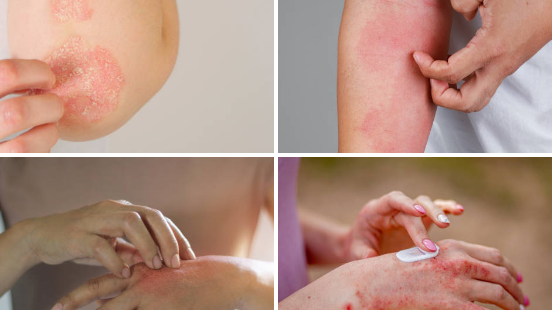
Why Fall and Winter Are the Seasons of Eczema Flares (And How to Manage Dry Skin in Cold Weather)
The cooler months bring a lot to look forward to — cozy sweaters, crisp autumn air, and holiday gatherings. But if you have eczema or dry, sensitive skin, fall and winter can also mean an increase in uncomfortable symptoms. As temperatures drop, many people notice their eczema symptoms flaring up, with dry skin patches, itchiness, and irritation making it harder to enjoy the season.
If you’re wondering why eczema flares up in colder months and what you can do to prevent dry skin in fall and winter, you’re not alone. Here’s a look at why eczema often worsens with seasonal changes, plus practical tips to keep your skin comfortable during the colder months.
Why Does Eczema Get Worse in Cold Weather?
The cooler seasons bring several changes that can aggravate sensitive skin. Here’s why fall and winter often lead to eczema flare-ups and increased dryness:
1. Dry Indoor Air
As soon as the heating comes on, indoor air tends to get much drier. The lack of humidity pulls moisture from our skin, which can worsen dry skin and eczema. This is particularly challenging for people with eczema, as their skin barrier is already sensitive to moisture loss.
2. Cold, Windy Air Outside
Cold air holds less moisture than warm air, so when you’re outside in fall or winter, your skin loses hydration faster. Wind can strip natural oils from the skin, causing dry skin patches and irritation, especially on exposed areas like the face and hands.
3. Long, Hot Showers
Hot showers feel great in chilly weather, but they can also strip away the skin’s natural oils, which protect against dryness. For eczema sufferers, this can mean even more dryness and irritation after bathing.
4. Heavier, Itchy Fabrics
Fall and winter bring layers and cozy clothes, but not all fabrics are kind to eczema-prone skin. Materials like wool or synthetic fibers can cause friction and irritation, leading to flare-ups. Wearing layers also traps heat, which can make sensitive skin itchier.
5. Increased Stress Levels
Between shorter days, holiday preparations, and less sunlight, stress levels often increase during fall and winter. Since stress is a common eczema trigger, it can add to the season’s challenges for people with sensitive skin.
How to Manage Eczema and Dry Skin in Fall and Winter
Here are some tried-and-true strategies for managing eczema in cold weather and keeping your skin moisturized all season long:
Moisturize Regularly
Moisturizing is key to eczema management. Look for thick, fragrance-free creams or ointments that create a barrier to lock in moisture. Applying moisturizer right after washing your hands or showering can prevent moisture loss and keep dry skin under control.
Use a Humidifier for Eczema Relief
A humidifier can add moisture back into your indoor air, which is essential for preventing dry skin and eczema flare-ups in fall and winter. Aim for a humidity level of 40-60% in your home for optimal skin comfort.
Limit Hot Showers and Baths
Try to keep showers warm (not hot) and limit them to 5-10 minutes to avoid stripping away natural oils. Gentle, fragrance-free cleansers also help preserve your skin’s moisture barrier.
Wear Soft, Breathable Fabrics
Opt for natural, breathable fabrics like cotton, which are less likely to irritate sensitive skin. Layering with soft, lightweight clothes can help you stay warm without causing eczema flare-ups.
Stay Hydrated from the Inside Out
Drinking water throughout the day is essential for overall skin health, and it’s especially important for people with dry, eczema-prone skin in fall and winter. Staying hydrated helps keep your skin barrier strong, preventing moisture loss.
Practice Stress Management
Try to incorporate stress-relieving activities like meditation, yoga, or gentle exercise into your routine. Reducing stress can have a positive impact on your eczema symptoms and overall skin health.
Embrace the Season While Protecting Your Skin
Managing eczema and dry skin in colder weather can be challenging, but it doesn’t have to stop you from enjoying fall and winter. With these tips, you can help prevent eczema flare-ups, reduce dry skin, and keep your skin healthier as temperatures drop. Embrace the season and stay comfortable by giving your skin the care it needs this fall and winter.

